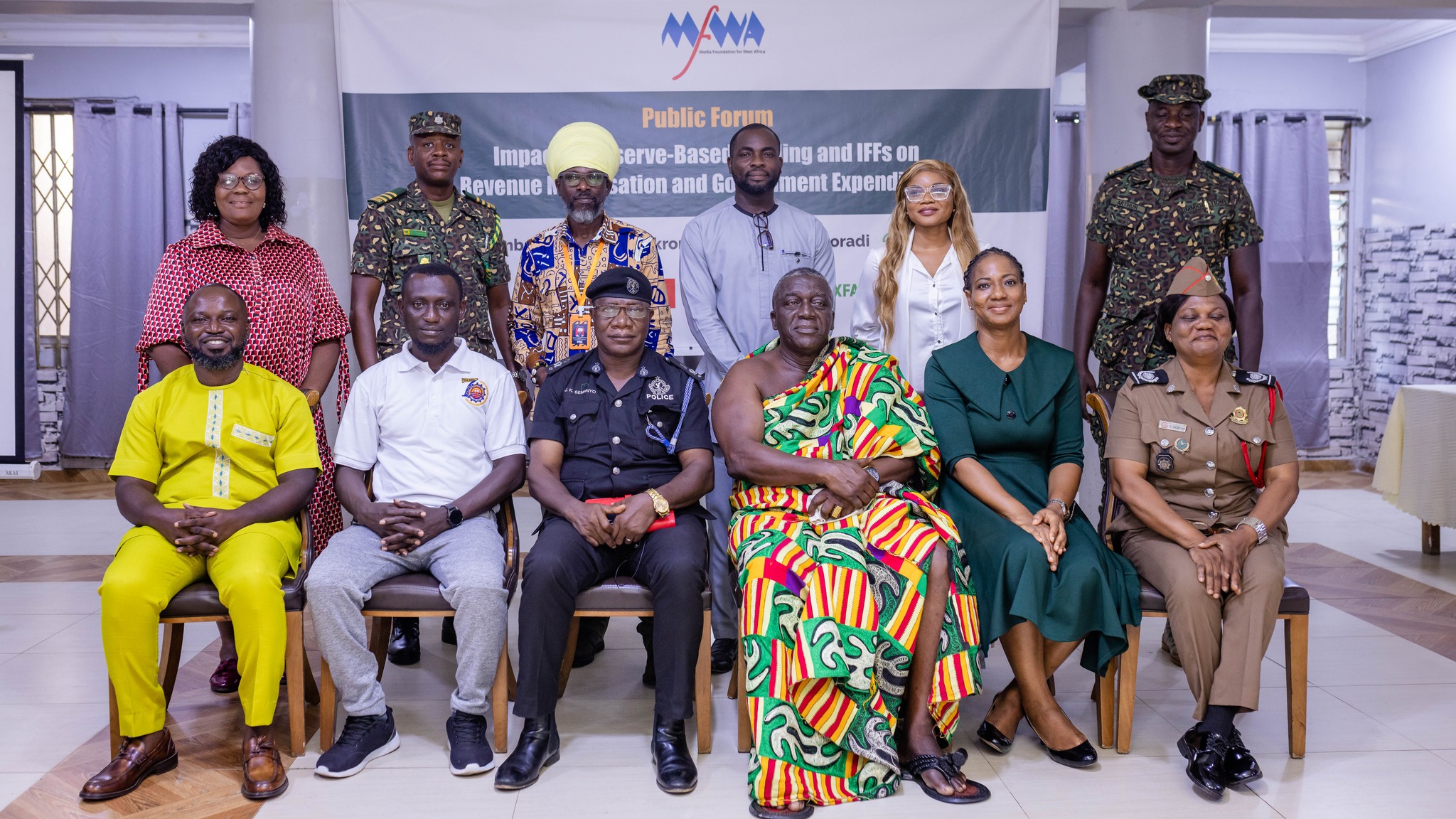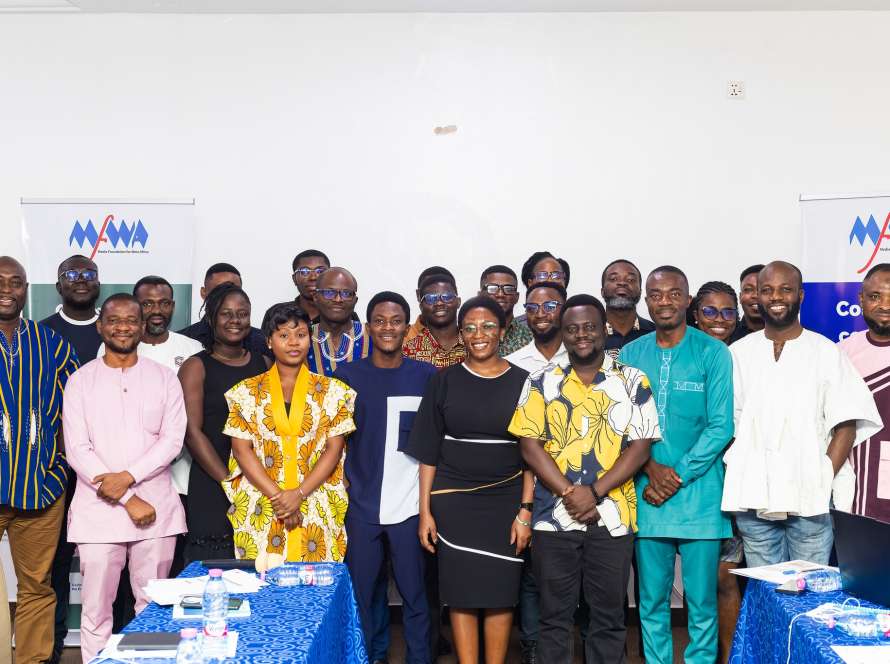At a forum held in Takoradi on November 26, 2024, stakeholders have called for effective collaboration, knowledge sharing and concerted efforts between the media and CSOs to monitor and track the implementation of regulations on Reserve-Based Lending (RBL), Illicit Financial Flows (IFFs), and spending from the oil, gas and mineral sectors. Further calls were made for the media and CSOs to actively play their watchdog roles to ensure better transparency and accountability in the extractive sector whiles pushing for government to carry out pro-poor and inclusive public spending to benefit communities especially affected by activities from the sector.
These calls were made at a public forum organized in Takoradi by the Media Foundation for West Africa (MFWA) on the ‘Impact of Reserve-Based Lending and Illicit Financial Flows (IFFs) on Revenue Mobilization and Government Expenditures’. The forum formed part of activities under the “Strategic Partnership Initiative for Ghana and West Africa” project, funded by DANIDA through OXFAM in Ghana.
It brought together over 70 participants from different sectors including the media, regulatory bodies, the security agencies, the Metropolitan and municipal assemblies, academia and students.
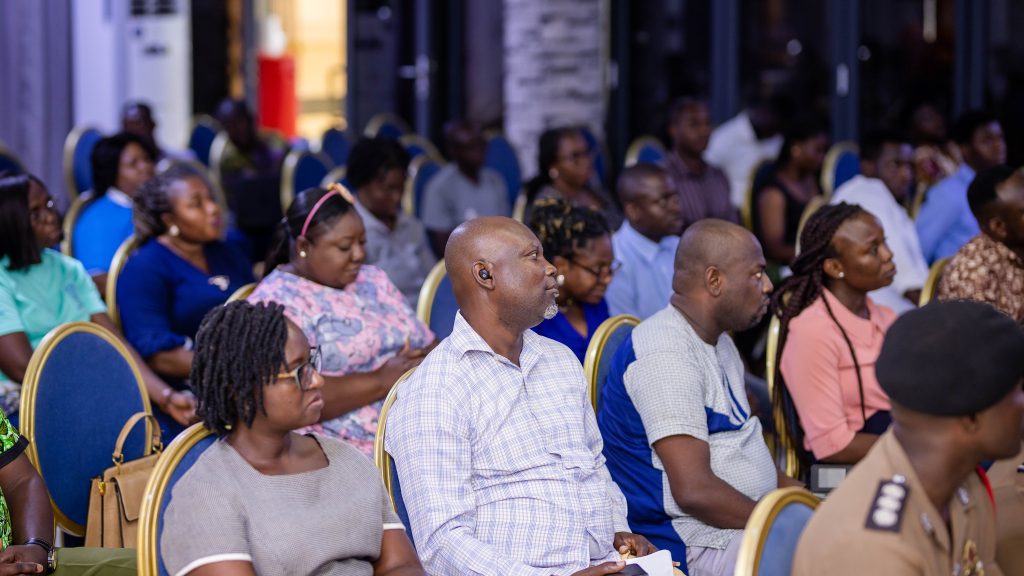
It discussed the impact of RBL and IFFs on revenue collections and pro-poor and inclusive government transactions and expenditure and explored strategies for enhancing accountability and transparency in public expenditures.
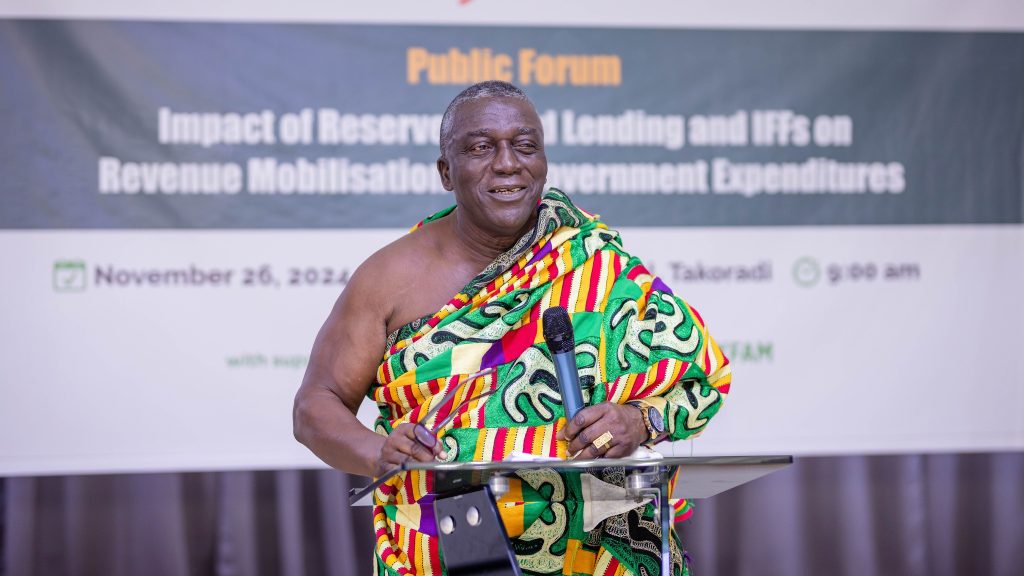
During the forum, a documentary on illegal mining in the Black Volta was screened. It highlighted the serious threat to the country’s environment, aquatic life, the ecosystem, and the livelihoods of communities that rely on the river. Giving his official address as the Chairman and Guest Speaker after the screening, Nana Kobina Nketsia V, the Omanhene of Essikado Traditional Area, decried the destruction of the environment and passionately called on all to work together to halt the canker. He said “it is high time Ghanaians think about future generations and stop doing things to harm each other”….“We should be conscious of all that we do, so the country will develop”, he said.
During a panel discussion on the topic: “the impact of Reserve-Based Lending IFFs on Revenue Mobilization and Government Expenditure: the Role of the Media and Stakeholders”, Solomon Kusi Ampofo, the Project Coordinator at Friends of the Nation (FoN), who was a panelist explained that the country’s natural resources are owned by the people of Ghana and as such, Ghanaians should be able to demand accountability and transparency. “It is high time Ghanaians express interest in how revenues generated in the country from the natural resources are used by those in authority. Ghanaians must learn to be citizens and not spectators, adding that illicit financial flows deny the public the benefits of the resources that are explored”.

He pointed out that the media should be capacitated on IFFs to report on it better and contribute to curtailing it. On strategies to mitigate IFF, he proposed that the Right to Information law should be used to demand for the needed information.
Other panelists comprised Lord Kwame Segbeawu, Lecturer at the Oil and Gas Department at the Faculty of Engineering at the Takoradi Technical University (TTU) and Kwame Agbeli Mensa, Vice Chairman of the Western Regional branch of the Ghana Journalists Association (GJA). Lord Segbeawu noted that there’s a huge knowledge gap in the oil and gas sector, and called on the MFWA to facilitate further training for journalists to bridge it. Kwame Mensa, on his part, called for a symbiotic relationship between the media and Civil Society Organizations (CSOs).
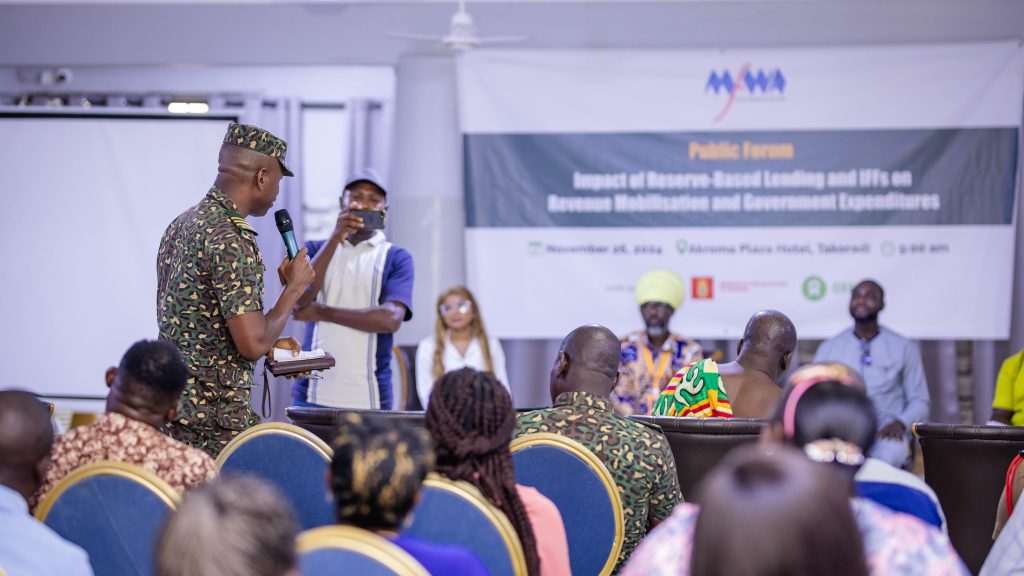
During the open session, stakeholders additionally encouraged the media to show more interest in RBL and IFFs and to also monitor the allocation of resources. Recommendations were made for more awareness raising as the issues of RBL and IFFs were technical, complex and multifaceted. Participants also affirmed the calls for training for journalists and other accountability stakeholders to enhance transparency in the extractive sector.



